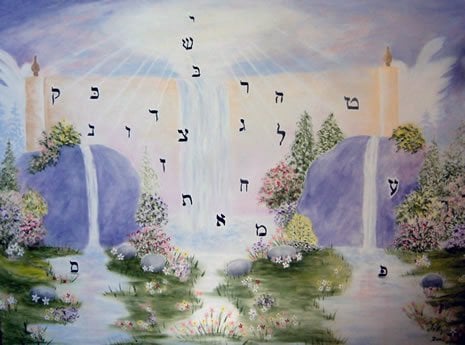In this week’s Torah portion, Naso, Moses concludes the long labor of building the mishkan, the portable sanctuary that will thereafter serve as an abode for the Divine Presence throughout the forty-year wilderness journey. The opening of the seventh chapter of Numbers acknowledges this occasion: It came to pass on the day that Moses finished setting up the tabernacle. . . . In its plain sense, the text is simply announcing the completion of a sacred construction project.
But the Rabbis offer a very different—and beautifully creative—understanding of the verse. Noting that the Hebrew word usually translated as “finished”—kallot—can also be rendered as “bride,” they interpret the passage as: It came to pass on the bridal day that Moses brought the Divine Abode back to earth. In this reading, the day of the tabernacle’s dedication marks a miraculous occasion that had never before happened in human history: God’s Presence descended from heaven and took up residence in this world—thanks to the labor of Moses. Or, to stick with the metaphor, God and humanity are united in a kind of holy marriage.
The midrash describes the scene as a drama of cosmic restoration. It begins with the Creation, when God fills the world, continues through a series of human failures that exile the Divine Presence, and concludes with seven leaders whose righteous deeds “re-marry” that Presence to the earthly realm:
At the beginning of time, the root of the Presence was fixed in the regions of the earth below. After Adam sinned, the Presence withdrew to the first heaven. After Cain, the Presence withdrew from the first heaven to the second. The sin of the generation of Enosh drove the Presence from the second to the third. The generation of the flood arose and sinned; the Presence withdrew from the third heaven to the fourth. The generation of the dispersion of Babel arose and sinned; the Presence withdrew from the fourth heaven to the fifth. The generation of Sodom and Gomorrah made the Presence withdraw from the fifth to the sixth. The generation of Egypt in the days of Moses arose; the Presence withdrew from the sixth to the seventh.
Corresponding to these wicked, seven righteous arose and brought the Presence back to the earth. Our father Abraham arose and by his merit it would later draw from the seventh to the sixth. Isaac’s merit brought it from the sixth heaven to the fifth. Jacob arose and his merit would bring the Presence from the fifth to the fourth. Levi arose: from the fourth to the third. Kohath arose: from the third heaven back to the second. Amram (Moses’ father) arose: the merit he earned brought the presence back from the second heaven to the first. Moses arose: he brought the Presence back to the earth.
With one significant revision—which would be to expand the list of righteous to include women and non-binary people—this ancient story might serve as a powerful metaphor for the labor of our own lifetimes. In a world that feels badly broken—where the Holy One often seems very far away—it is our calling to restore the Divine Presence through deeds of justice, compassion and love.
Conversation Question: What might you do this week to help make the world a more “godly”place?
